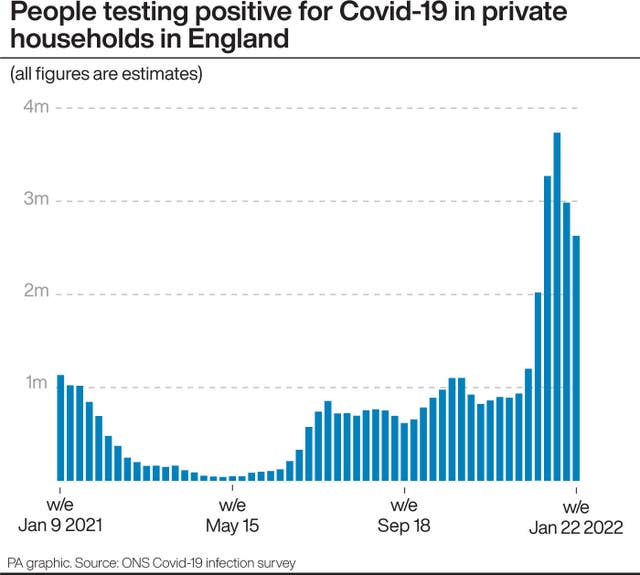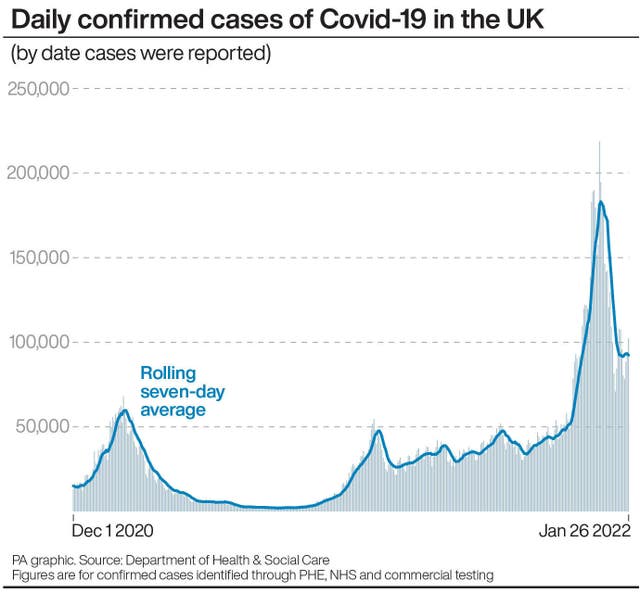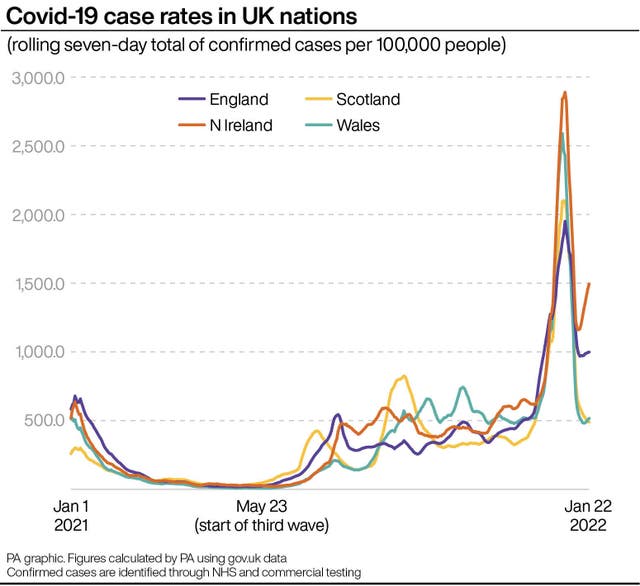Covid-19 infection levels fall in much of UK but remain high
The figures are the most reliable snapshot of how prevalent coronavirus is across the country.

Covid-19 infections have continued to fall in most parts of the UK, though levels are still higher than before Christmas, new figures suggest.
England, Scotland and Wales all saw a drop last week in the number of people in private households estimated to have Covid-19, according to the Office for National Statistics (ONS).
Northern Ireland is estimated to have seen a small decrease in infections, though the ONS described the trend here as “uncertain”.
The latest figures suggest the virus is no longer as prevalent as at the start of the year, when all four nations saw a record level of infections.
An estimated one in 20 people in private households in England are likely to have had Covid-19 in the week to January 22, or 2.6 million people, down from 3.0 million the previous week.
In Scotland, around one in 30 is estimated to have had Covid-19 last week, or 163,600 people, down from 236,600.

In Wales, the estimate is also one in 30, or 99,500 people, down from 112,100.
For Northern Ireland, the latest estimate is one in 20, with the total people testing positive down slightly from 104,300 to 96,500.
The number of Covid-19 infections in the UK, which is estimated every week by the ONS, is a more reliable guide to the level of coronavirus across the country than the number of new cases reported every day by the Government.
This is because the number of infections provides a snapshot of the prevalence of Covid-19 within the entire community population of the UK, and estimates the percentage of people who are likely to test positive for the virus at any one point – regardless of when they caught the virus, if they have had it before and whether they have symptoms.

It is based on a sample of swab tests collected from tens of thousands of households across the UK.
By contrast, the number of cases of Covid-19 reported each day by the Government is limited only to those people who have newly tested positive for the virus, and is affected by how many people are coming forward for tests, those who have reported their test results, or who are taking a test because they know they have coronavirus symptoms.
In England, the percentage of people last week who were likely to test positive for Covid-19 continued to increase among children aged from two to school year 6, and also increased for those from school year 7 to 11, the ONS said.
Positivity rates are estimated to have fallen for all other age groups.

All regions of England saw a drop in infections last week except for the South West, where the trend is uncertain.
In the North East, North West and Yorkshire/Humber, around one in 15 people was likely to test positive for Covid-19 in the week to January 22 – the highest estimates for any region.
South-west England had the lowest rate, at around one in 30.





